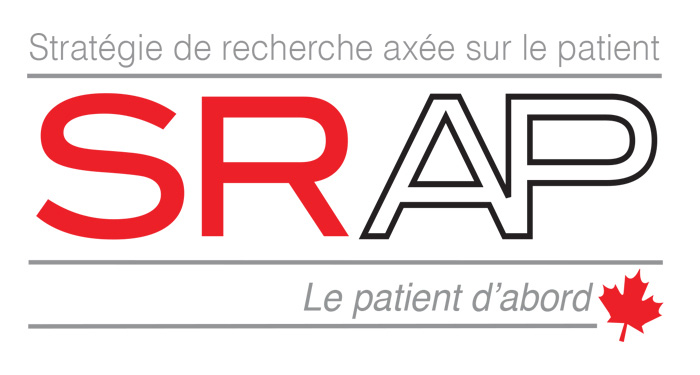Le comité de la relève du CQMF a le plaisir de vous proposer un webinaire sur le thème de l’intelligence artificielle (IA) en médecine de famille.
En première partie, notre invité spécial, le Dr Samuel Gareau-Lajoie, partagera des exemples concrets et pertinents d’utilisation de l’IA en pratique, tout en explorant les limites, les risques et les balises essentielles pour une utilisation sécuritaire. Cette activité de DPC vise à vous doter d’outils pour évaluer de manière critique des solutions d’IA et pour les intégrer de façon responsable à votre exercice professionnel. Une période de questions et réponses suivra en deuxième partie.
L’événement s’adresse autant aux étudiantes et étudiants en médecine désireux d’en apprendre plus sur l’intelligence artificielle en médecine de famille, qu’aux résidentes et résidents en médecine de famille et aux médecins en exercice.
Description: Le partenariat patient en recherche s’est imposé comme un levier essentiel pour une recherche plus inclusive, pertinente et ancrée dans les réalités vécues. En intégrant les savoirs expérientiels des patient(e)s, les équipes de recherche enrichissent leurs approches et renforcent l’impact de leurs travaux. Pour faire le point sur les avancées, les défis et les apprentissages issus de cette collaboration, nous vous invitons à vous joindre à une table ronde sur ce thème. Une patiente partenaire d’expérience et les membres de trois différentes équipes de recherche de la FMSS partageront leurs expériences concrètes et ouvriront le dialogue sur les meilleures pratiques à adopter pour l’avenir.
Public cible : personnes chercheuses et étudiantes, personnel de recherche, grand public.
Présentateurs et présentatrices : Anne-Marie Auger, coordonnatrice à la recherche, Chaire de recherche sur les dépendances comportementales Mathieu Bisson, agent de recherche, Chaire de recherche sur la mise en œuvre de soins intégrés pour les personnes avec des besoins complexes Marie-Eve Perron et Anaëlle Morin, candidates au doctorat, équipe de recherche sur les pratiques professionnelles en soins primaires optimales Marie-Dominique Poirier, patiente partenaire, Chaire de recherche sur la mise en œuvre de soins intégrés pour les personnes avec des besoins complexes, équipe de recherche sur les pratiques professionnelles en soins primaires optimales
Le comité organisateur:
Anne-Marie Auger, Chaire de recherche sur les dépendances comportementales de la Pre Magaly Brodeur Mathieu Bisson, Chaire de recherche sur la mise en œuvre de soins intégrés pour les personnes avec des besoins complexes de la Pre Catherine Hudon Mathieu Cook, Chaire de recherche sur la mise en œuvre de soins intégrés pour les personnes avec des besoins complexes de la Pre Catherine Hudon Marie-Eve Perron, Équipe de recherche sur les pratiques professionnelles optimales en soins primaires de la Pre Marie-Eve Poitras et Chaire de recherche du Canada sur les interventions de soutien à l’autogestion de maladies pour les patients et leurs proches aidants de la Pre Sylvie Lambert Stéphanie Tremblay-Lavoie, Laboratoire de recherche des Prs Isabelle Dufour et Yohann Moanahere Chiu Hanane Zabouche, étudiante de deuxième cycle au programme de recherche en sciences de la santé de l’Université de Sherbrooke supervisée par Pre Catherine Hudon et Pr Patrick Richard
À propos de cette séance :
Ce webinaire gratuit invite les membres des communautés noires vivant avec une maladie rénale — ainsi que leurs proches et leurs aidants — à explorer comment ils peuvent contribuer à transformer les soins rénaux au Canada en donnant leur avis et leurs conseils sur la recherche.
Objectifs d’apprentissage:
✅ Découvrez comment vous impliquer dans la recherche sur les maladies rénales
✅ Écoutez les partenaires patients noirs qui mènent déjà le changement
✅ Contribuez à bâtir un système de santé plus inclusif et équitable
Patients for Patient Safety Canada (https://www.patients4safety.ca) (PFPSC) is hosting a webinar about patient safety for all children – ‘Safe From the Start- Safe Care for Every Child’ on Sept. 17 connected to the World Health Organization’s celebration of World Patient Safety Day. PFPSC invites families and healthcare providers to this national webinar. The intent is for families to gain practical tools and insights to advocate effectively for their children’s healthcare and for healthcare providers to hear directly from families and experts about what matters most in pediatric safety.
When: September 17, 2025, from 12-1pm ET.
Register: You can register for the webinar here.
La Série d’apprentissage francophone du CPCRC aura lieu le mercredi 15 octobre 2025 à 12 h (HE).
Cette session est organisée par le volet francophone du CPCRC, dirigé par Sharon Johnston Ontario), Mylaine Breton, Catherine Hudon et Catherine Lamoureux-Lamarche (Québec). Il s’agit de la première d’une nouvelle série qu’elles coordonneront afin de promouvoir la recherche et la collaboration en français au Canada et à l’international, en partenariat avec le Groupe francophone international en soins primaires. Ces sessions se dérouleront en français, avec des sous-titres anglais disponibles à travers Zoom.
La séance inaugurale est intitulée : Promouvoir la recherche francophone en soins primaires : réflexions tirées d’un forum international.
Panélistes:
Catherine Hudon, MD, Ph. D., CFPC, est professeure titulaire au Département de médecine de famille et médecine d’urgence de l’Université de Sherbrooke. Elle est titulaire de la Chaire de recherche du Canada sur la mise en œuvre de soins intégrés pour les personnes avec des besoins complexes.
Mylaine Breton, Ph. D., MBA, est professeure titulaire au Département des sciences de la santé communautaire de l’Université de Sherbrooke. Elle est titulaire de la Chaire de recherche du Canada en gouvernance clinique des services de première ligne.
Sharon Johnston, M.D., LLM, est professeure agrégée et chercheuse clinicienne au Département de médecine familiale de l’Université d’Ottawa et directrice scientifique et chercheuse à l’Institut du Savoir Montfort.
Voici le lien d’inscription zoom : https://us02web.zoom.us/meeting/register/Y1RncrMDRM2vsFYPfrfjhA
25 septembre 2025, 14h30-15h30 CET (Europe), 8h30-9h30 EST (Québec)
Lieu: Zoom
Titre: Le Centre Interdisciplinaire de Développement International en Santé de l’Université de Sherbrooke (CIDIS) : au cœur d’une approche interdisciplinaire et décoloniale en santé mondiale
Conférencier(ère)s: L’équipe du CIDIS
Discutant: Jean Macq, Université catholique de Louvain






